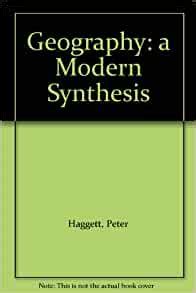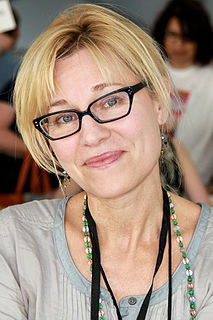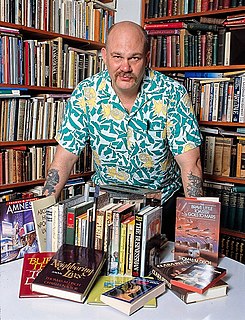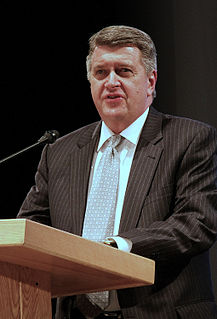A Quote by Elaine Pagels
The Book of Revelation is such a dream landscape that you can plug any major conflict in it.
Quote Topics
Related Quotes
The Place of Religion in Chicago is a clearly written account of a little-studied aspect of American landscape. Based on unique field surveys and supported by photographs, tables, and beautifully crafted maps, the book will form a lasting contribution to our understanding of an overlooked element of the American urban scene: the religious landscape of a major metropolis.
As it now stands, I Enoch appears to consist of the following five major divisions:
(1) The Book of the Watchers (chaps. 1-36);
(2) The Book of the Similitudes (chaps. 37-7l)-,
(3) The Book of Astronomical Writings (chaps. 72-82);
(4) The Book of Dream Visions (chaps. 83-90); and
(5) The Book of the Epistle of Enoch (chaps. 91-107).
One major difference between Mormons and evangelicals on the subject of revelation is that Latter-day Saints believe that God has appointed modern-day prophets and apostles to receive revelation for Christ's church. All church members may receive revelation appropriate for their particular callings or positions within the church and their families, but never in contradiction to church doctrine or policy. So Mormonism has both a democratic practice of revelation that would resonate with evangelicals, but also an institutional understanding of revelation foreign to evangelicalism.
It is clear that there must be difficulties for us in a revelation such as the Bible. If someone were to hand me a book that was as simple to me as the multiplication table and say, “This is the Word of God; in it He has revealed His whole will and wisdom,” I would shake my head and say, “I cannot believe it; that is too easy to be a perfect revelation of infinite wisdom.” There must be, in any complete revelation of God's mind and will and character and being, things hard for the beginner to understand; and the wisest and best of us are but beginners.
But before any of the small appliances who may be listening to this tale should begin to think that they might do the same thing, let them be warned: ELECTRICITY IS VERY DANGEROUS. Never play with old batteries! Never put your plug in a strange socket! And if you are in any doubt about the voltage of the current where you are living, ask a major appliance.
The pleasure a man gets from a landscape would [not] last long if he were convinced a priori that the forms and colors he sees are just forms and colors, that all structures in which they play a role are purely subjective and have no relation whatsoever to any meaningful order or totality, that they simply and necessarily express nothing....No walk through the landscape is necessary any longer; and thus the very concept of landscape as experienced by a pedestrian becomes meaningless and arbitrary. Landscape deteriorates altogether into landscaping.
The human understanding is a revelation from its maker, which can never be disputed or doubted. There can be no scepticism, Pyrrhonism, or incredulity or infidelity here. No prophecies, no miracles are necessary to prove this celestical communication. This revelation has made it certain that two and one make three, and that one is not three nor can three be one. We can never be so certain of any prophecy, or the fulfilment of any prophecy, or of any miracle, or the design of any miracle, as we are from the revelation of nature, that is, nature's God, that two and two are equal to four.
There are many kinds of revelation. But the most powerful is the vision which transcends the mental boundary between life and non-life, and Scotland is a place where this sort of revelation often approaches. Staring into a Scottish landscape, I have often asked myself why--in spite of all appearances--bracken, rocks, man and sea are at some level one.





































